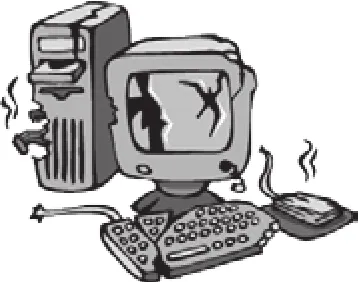口语步步高
张新峰供稿
Track 16
功 ◆ 能 ◆ 口 ◆ 语
一年当中有许多节日——春节、元宵节、端午节和中秋节……在节日里,我们会吃各种各样的食品、进行各种各样的特色活动。下面就让我们一起来看看本期的话题——节日。

一、常用表达⇁
1. In China, the Spring Festival is the biggest festival of the year. 中国最大的节日是春节。
2. In the West, Christmas is the biggest festival of the year. 西方最大的节日是圣诞节。
3. —What dishes are usually served at the tables on the Spring Festival?
春节的餐桌上通常有什么菜?
—Fish, pork, chicken as well as jiaozi. 有鱼、猪肉、鸡,还有饺子。
4. —What’s your favorite festival? 你最喜欢的节日是什么?
—I like the Mid-Autumn Festival the most, because we can eat mooncakes.
我最喜欢中秋节,因为我们可以吃月饼。
5. —How is the Dragon Boat Festival celebrated? 端午节是怎么庆祝的?
—There must be dragon boat races and people eat zongzi. 这天必定有龙舟赛,人们还吃粽子。
6. —What festivals are there in the West? 西方有哪些节日?
—There is Christmas Day, Easter and Halloween. 有圣诞节、复活节和万圣节。
7. I also know that the Water Festival is really fun. 我还知道泼水节很有趣。

8. What fun the Water Festival is! 泼水节是多么有趣!
9. How pretty the dragon boats are! 龙舟是多么漂亮!
10. Children can eat all kinds of food on Christmas. 在圣诞节,孩子们可以吃各种各样的食物。
11. —I wonder if they’ll have the races again next year. 我想知道明年他们是否还有龙舟赛。—Of course. They have them every year. 当然,他们每年都举办龙舟赛。
12. —Hey, Jane, what do you know about Halloween? 嘿,简,你了解万圣节吗?
—Oh, it’s a popular festival in North America. 噢,它在北美洲是个很受欢迎的节日。
二、对话演练⇁
从方框中选出合适的选项补全对话,其中有两项是多余选项。
Nathan:There is a festival in June in our country. It’s Father’s Day. 1
Li Fei:Yes, it’s on the fifth day of the fifth lunar[阴历的]month. We call it Dragon Boat Festival.
Nathan:
Li Fei:We make and eat zongzi and hold dragon boat races.
Nathan:Why do you celebrate Dragon Boat Festival?
Li Fei:Oh, it is a story about Qu Yuan. He lived about two thousand years ago. His job was to give advice to the emperor. But he wasn’t trusted and often got punishment. So he jumped into the Miluo River and died.
Nathan:Was the day that Qu Yuan died on the fifth day of the fifth lunar month in that year?
Li Fei:From then on, Chinese people began to eat zongzi and have dragon boat races on that day to memorize him.
A. What happened to him?
B. Is there a Chinese festival in June, too?
C. Thank you for telling me.
D. Yes, you are very smart.
E. It sounds very interesting.
F. What do you usually do on that day?
G. What a pity!答案:1-5 BFEGD
口 ◆ 语 ◆ 一 ◆ 点 ◆ 通
1 You’re welcome. 不要客气。
他人有事请我们帮忙,我们在能力范围内帮完之后,他人自然会道谢。此时我们可使用本句回应。
A:Thank you for lending me your notebook. 谢谢你借给我笔记本。
B:Oh, you’re welcome. 噢,不要客气。
【常用口语】
That’s the least I could do. 小事不足挂齿。
Not at all.=Don’t mention it. 别客气。
【特别提醒】
除了上列类似用语之外,年轻人还喜欢用“You bet.”。此句原意为“你可以打赌(下回我仍会帮你忙)。”,故可引申为“不要客气”。

2 It’s my fault. 那是我的错。
认错往往需要很大的勇气,但如果我们确实犯了错,不应畏缩逃避找借口,而应当勇于承认错误,这时可使用本句。相信如此行为必能赢得对方的钦佩与敬重。
A:Why is there water all over the bathroom floor? 为什么浴室的地板全是水?
B:I’m sorry. It’s my fault. I was filling the bathtub and I left the water running too long, so it overflew.
很抱歉,是我的错。刚才我在给浴缸放水,让水流了太久,结果水溢出来了。
A:That’s OK. As long as you clean it up. 没关系。只要你把地板清理干净就行了。
【常用口语】
It’s my mistake. 那是我的错。
I’m to blame. 应该怪我。
【特别提醒】
“I’m to blame.”使用了“sb.+be+to blame”的句型,表“某人应受责/负责”。例如:
He’s to blame for the mistake.=He should be responsible for the mistake. 他应为此错误负责。

3 Believe me. 相信我。
本句与“I’m positive.” 的句意及使用的时机相近。使用本句时,语气要坚定,才能获得对方的信任。
A:Are you saying you saw an eagle? There are no eagles here.你是说你看到了一只老鹰吗?我们这里是没有老鹰的。
B:Yes, I saw one. Believe me. 有,我看见一只。相信我。
A:You must have seen some other kind of bird. 你必定是看到其他种类的鸟了。
【常用口语】
I’m telling the truth. 我是说真的。
Trust me.相信我。
【特别提醒】
上列对话中,使用了“must have+p.p.”的句型,表“必定曾经……”,这是对发生在过去的事情作肯定的推测,类似的句型还有:“may have+p.p.(也许曾经……)”,及“can’t have+p.p.(不可能曾经……)”。例如:
He may have come here yesterday. 他昨天可能来过这儿。
The road is dry, so it can’t have rained last night. 路上是干的,所以昨晚不可能下过雨。

4 I told you so. 我早就告诉过你了。
有时我们提供良心的建议给对方,然而对方却不采纳,导致错误发生。这时可以说这句话,说时语气是略带责难的。
A:This computer isn’t working properly. 这台计算机运作不正常。
B:I told you so. I kept having problems with it yesterday. I don’t know what’s wrong.
我早就告诉过你了。昨天它一直问题不断。不知是哪儿出了毛病。
A:We need to get it fixed soon. 我们必须赶紧把它修好。
【常用口语】
I told you. 我早就告诉过你了。
Didn’t I tell you? 我没告诉过你吗?

【特别提醒】
上列对话中,使用了“have problems with+sth.”的句型,表“在做某件事情时遇到困难”,本句型也可替换为“have difficulty/trouble/a hard time+V-ing”。例如:He had problems with the work.
= He had difficulty doing the work.= He had trouble doing the work.
= He had a hard time doing the work.
他做这份工作遇到了困难。


